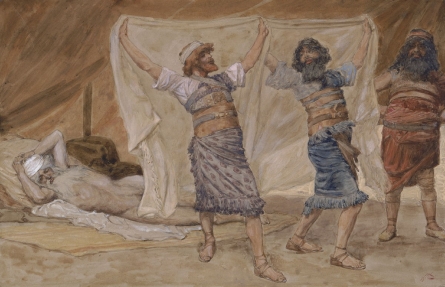
In Genesis 9 we see that <Ham saw the nakedness of his father>:
Genesis 9:22 [KJV]
22 And Ham, the father of Canaan, saw the nakedness of his father, and told his two brethren without.
23 And Shem and Japheth took a garment, and laid it upon both their shoulders, and went backward, and covered the nakedness of their father; and their faces were backward, and they saw not their father's nakedness.
24 And Noah awoke from his wine, and knew what his younger son had done unto him.
25 And he said, Cursed be Canaan; a servant of servants shall he be unto his brethren.
Why is it wrong for a son or daughter to see their father’s nakedness?
Why was Canaan cursed if it was his father Ham who saw the nakedness of Noah?
The answer is in Leviticus:
Leviticus 18:7 [RSV]
7 You shall not uncover the nakedness of your father, which is the nakedness of your mother; she is your mother, you shall not uncover her nakedness.
Uncovering the nakedness of your father is a ‘Hebrew idiom’ meaning to have a sexual union with your mother (or father’s wife). Ham did not ‘see’ his father’s nakedness, instead, he had a sexual union with his mother and evidently, the product of that union was his son Canaan, hence his being cursed.
But verse 22 tells us that Ham’s transgression was two-fold. Ham <saw the nakedness of his father and told his two brethren without>.
By telling his brothers who were outside what had happened inside the tent Ham, was committing «lashon hara» (evil tongue). Lashon Hara is derogatory speech about another person, it is the use of true speech for a wrongful purpose, rather than falsehood and harm arising.
Ham disrespected his father Noah not only by <seeing his nakedness> or having sexual intercourse with Noah’s wife, but on top of that, by telling his brothers about what he had done.
References: Jeff A Benner, 20+ years teaching Biblical Hebrew and Bible interpretation; Tom Bradford
Unless otherwise noted, all Scriptures are from The Scriptures,
Copyright by Institute for Scripture Research.
Used by permission.